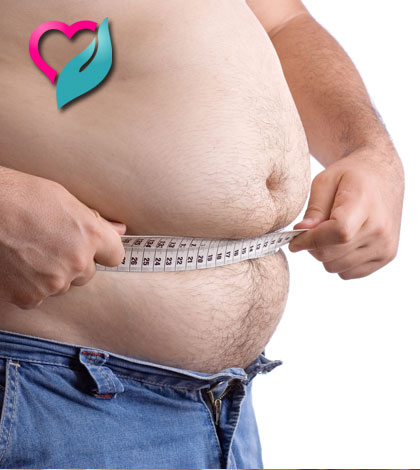Researchers at the University of Minnesota School of Public Health have found further evidence to support the importance of encouraging young people to eat breakfast regularly. They found that kids who ate breakfast on a regular basis were less likely than their peers to be overweight.
[wp_ad_camp_1]
The study examined the association between breakfast frequency and five-year body weight change in more than 2,200 adolescents, and the results indicate that daily breakfast eaters consumed a healthier diet and were more physically active than breakfast skippers during adolescence.
Five years later, the daily breakfast eaters also tended to gain less weight and have lower body mass index levels an indicator of obesity risk compared with those who had skipped breakfast as adolescents.
[wp_ad_camp_4]
Over the past two decades, rates of obesity have doubled in children and nearly tripled in adolescents. Fifty-seven percent of adolescent females and 33 percent of males frequently use unhealthy weight-control behaviors, and it is estimated that between 12 and 24 percent of children and adolescents regularly skip breakfast.
This percentage of breakfast skippers, while alarming, has been found to increase with age, the researchers said.
“Although adolescents may think that skipping breakfast seems like a good way to save on calories, findings suggest the opposite,” said Dianne Neumark-Sztainer, Ph.D., principal investigator of Project EAT.
“Eating a healthy breakfast may help adolescents avoid overeating later in the day and disrupt unhealthy eating patterns, such as not eating early in the day and eating a lot late in the evening.”
[wp_ad_camp_2]
Weight Loss Tips
Your body weight is a balancing act, and calories are part of that equation. Fad diets may promise you that counting carbs or eating a mountain of grapefruit will make the pounds drop off. But when it comes to weight loss, it’s calories that count. Weight loss comes down to burning more calories that you take in. You can do that by reducing extra calories from food and beverages and increasing calories burned through physical activity.
Once you understand that equation, you’re ready to set your weight-loss goals and make a plan for reaching them. Remember, you don’t have to do it alone. Talk to your doctor, family and friends for support. Also, plan smart: Anticipate how you’ll handle situations that challenge your resolve and the inevitable minor setbacks.
If you have serious health problems because of your weight, your doctor may suggest weight-loss surgery or medications for you. In this case, you and your doctor will need to thoroughly discuss the potential benefits and the possible risks.
But don’t forget the bottom line: The key to successful weight loss is a commitment to making permanent changes in your diet and exercise habits.
- Healthy weight loss involves exercise and a healthy diet that contains less saturated fat and fewer calories. See more tips on the next few pages for shedding those extra pounds.
- Cardiovascular exercise (such as jogging, walking or biking) five or six days a week is a great way to burn calories. Try to exercise for at least 30 minutes, or break it up into three 10-minute sessions over the course of the day.
- In addition to cardio, incorporate weightlifting into your workout routine. The muscles you build will help you burn calories even when you aren’t active.
- When it comes to food, keep in mind that if you have been eating high-fat foods like burgers and fries, it may take a few weeks for your body to stop fat cravings.
- So what should you eat? Vegetables like spinach, broccoli, salad greens, tomatoes and peppers are low in calories and can help control food cravings.
- Fruit, especially grapefruit, has also been shown to aid weight loss. Aim for at least three servings of fruit each day.
- If you have a sweet tooth, fruit can also be a substitute for some of your desserts. You’ll get more nutrients and less fat.
- Replace white bread with whole grain. Likewise, eat brown rice instead of white.
- When eating meat, go for the leaner options such as chicken breast, salmon, turkey and egg whites. You’ll also reduce calories and fat by grilling or broiling your food.
- Olive oil is one of the healthier cooking oils if you prepare meals at home. The best bet is to switch to a cooking spray to reduce more fat and calories.
- Be aware of portion sizes: four stacked dice equals 1-ounce portion of cheese. Poker chips are another game piece that can help you quickly identify 1 tablespoon of butter, dressing or mayonnaise.
- Don’t skip breakfast! Eating several small meals throughout the day, including breakfast, helps your metabolism. The fruit and cereal above is a healthy, high-fiber option.
- Another good tip is to eat slower. Take smaller bites or try replacing your fork on your plate after each bite. This allows time for your stomach to feel full, and you will likely eat less calories as a result.
- Be sure to drink more water when trying to lose weight. Sometimes dehydration may feel like hunger, and the water will help you feel full longer.
- By avoiding sodas, you can also cut several hundred calories from your diet each day.
- If you are still having trouble with your eating habits, keep a food journal of everything you eat so that you can pay more attention to what you are consuming.
- Invest in some low-fat cookbooks so you can eat healthier at home.
Unintentional weight loss occurs in many diseases and conditions, including some very serious diseases such as cancer, AIDS, and a variety of other diseases.
[wp_ad_camp_3]
Image courtesy : climbforcharity.com , francescakotomski.com , drnibber.com






























Pingback: Obesity: The major reason for cause is Sugar and Carbohydrates, not lack of Exercise – A new study - Ethnic Health Court